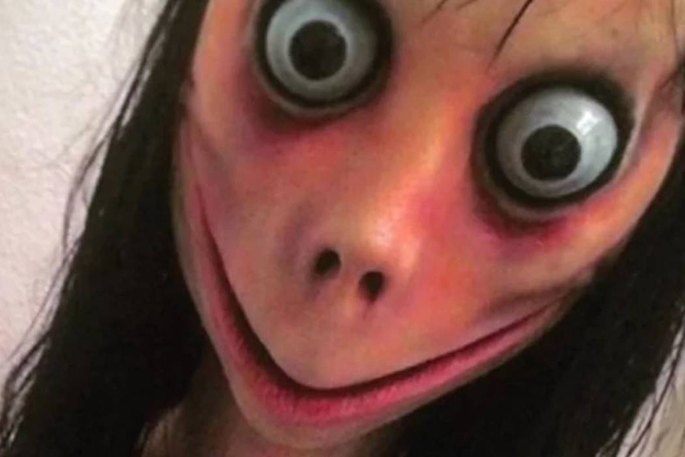An online game said to encourage children to self-harm is likely a hoax, but that hasn't stopped agencies in New Zealand and overseas sounding the alarm.
The game reportedly involves a puppet-like character called Momo that pops up in YouTube videos to scare children and issue disturbing demands.
But despite international warnings, few people can point to evidence it's a real danger.
An image of Momo has appeared in news reports and social media alongside warnings that she is urging children to harm themselves.
She has lank black hair, enlarged dark-ringed eyes and a thin distorted smile stretching from ear to ear.
Social media is lit up with parents saying their children have seen Momo or they've heard she messages young people using messaging service, WhatsApp.
Netsafe and schools are issuing warnings to parents to be vigilant.
President of the Auckland Primary Principals Association Helen Varney says a teacher reported a year six girl drawing a disturbing image.
After the girl was questioned, she said she had seen an internet challenge, says Helen.
"She's calm, she's got good friendships, so it was a bit of a telling thing when the picture was drawn and the teacher saw this."
Helen did not want to describe the drawing, but she says it included a face.
She has reason to believe it was Momo, she says.
"Whether it's for real, the fact is these things are out there and they're being talked about.
"Our responsibility is to talk to our children regardless."
Challenge characteristic of moral panic
For the most part, the image of Momo circulating seems to be the same one, shown over and over again.
Some commentators say it's moral panic fuelled by unverified media reports.
No agencies can produce evidence the challenge exists or if it poses a real risk of harm.
YouTube says it had seen no recent evidence of videos promoting the Momo challenge on its website.
Sarah Monod de Froideville is a lecturer in criminology at Victoria University of Wellington and researches moral panic.
She says it immediately struck her as being characteristic of moral panic.
There are often moral panics about media, social media, gaming, video nasties and sexting, she says, adding that there is a whole genre of moral panic centred around creepy characters haunting children.
Sarah says moral panic is where the concern outruns the actual level of harm.
Momo taps into parental anxiety, she says.
Naturally, parents would feel upset if their children are watching disturbing content, she says.
"But if you're getting upset and there has been nothing happening yet, I would think critically about it. Is this a fear being stimulated or is this something that is actually threatening?"
'This is not real'
Netsafe's Sean Lyons says whether it was a hoax or not is a moot point.
"The very viral nature of the internet means that potentially as there is more attention on it, what you see is more incidents of it."
Whether its based on one organised group becomes less and less relevant, he says, because people have the potential to copy it.
He believes the message was still worth stressing.
"It is really important that the message is out there that this is not real, the threats to their families aren't genuine.
"If that helps a young person to be more resilient to it and ignore it, then that's really good."
Netsafe says they have not had reports of anyone seeing the challenge, but that parents had indicated their concerns.
Police could not say whether they had had any reports of the challenge.



0 comments
Leave a Comment
You must be logged in to make a comment.